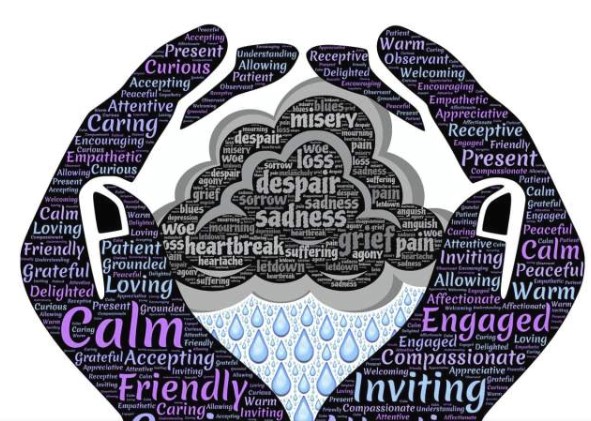Ask me a question…I’ll tell you no lie.
This series on compassion was inspired by a question someone asked me. “Do you think I’m compassionate?” My first thought was, “why are you asking me this question?” Had I bored them with sharing the rigors of my last six-months including the death of my only sister? Had they been overwhelmed with the traumatic events rehearsed continually on the evening news and social media?
I didn’t have an answer. However, I thought it admirable that they cared enough to ask the question.
Do you think I’m compassionate?
That’s a good question to ask especially in this age when we’re often told to “suck-it-up and keep it moving’. We daily are traumatized and stressed by events of our world. We are awakened each morning with updates of the war in at least 2-3 countries, at least two “natural disasters” (one international and one nationally), and let’s not forget the threats “seen and unseen” (Psa. 91:5-6). Perhaps these fears are the reason we emotionally “tune out” what’s happening to us in order to protect ourselves. Why do we “shut down”?
Recently published in the Journal of Experimental Psychology is this insight about why people resist experiencing compassion for others, despite it being a generally positive feeling.
More people are finding it increasingly difficult to engage with each other, and as people are overwhelmed with the amount of suffering right now due to the pandemic, it may make compassion particularly difficult.
The cost of caring
Without a doubt, showing compassion costs. The cost is expressed in both emotional commitment and physical engagement. The characters in the Parable of the Good Samaritan considered the cost. This would include their understanding of the situation which would determine their engagement. They would then consider the effort it would take to resolve the problem. A little or a great deal?
The priest “saw the traveler and moved to the other side.” The priest evaluated the situation. He probably thought the man was dead. What would he do with a dead man on the road? Bury him? Take him with him? He didn’t even know him. Too much work! He also knew that involvement with a dead person would make him ceremonially “unclean” (Num. 9:7). The uncleanness would last for at least seven days, until he could be purified again. He wouldn’t be able to conduct his duties at the temple. He had to protect his job. Based on the effort and his understanding of the situation, he left the man on the road. Do his responses sound like ours when we see someone in need?
The Levite “came and looked”. He saw that the traveler wasn’t dead, so why didn’t he help? The text doesn’t say, and we choose not to speculate. Regardless, the result was the same as with the priest, the Levite “passed by the other side.”
What would we have done in this situation? Hindsight is 20/20. We know the back drop for the parable and how the story ends. But in 2023, when we are faced with pain and suffering, do we also “pass to the other side”? Do we need to understand all the details and effort required before we engage in others pain?
Compassion—a mental or spiritual challenge
Why was the response by the Samaritan different than the priest and the Levite? What was the principle Jesus was attempting to share with the lawyer (Luke 10:25-29) and also to us living in 2023? We are to show mercy and compassion, like the Samaritan.
The word compassion in the Luke 10 passage is used almost exclusively to describe Jesus’ response in the Gospel accounts. It is a verb (action word) showing the deepest level of compassion (Luke 7:13). It means to have the bowels yearn. When Jesus’ compassionate response was described in this way, the occasion was often the turning point in someone’s life (Mark 1:40-42; Matt 9:33-38)
Called to be compassionate
While there are mental processes that we use to engage in compassion, we must focus our responses on that which God expects. God expects us to show compassion to those He places in our path and sphere of influence. Jesus expects us to act like the Samaritan and “show mercy” (Luke 10:37).
God calls each of us to have compassion for others. That call is more than an appeal for us to “feel pity for the needy”. It is a call to care enough to become involved. Like Jesus’ compassion, we are expected to take action that will set others’ lives on a fresh, new course.

